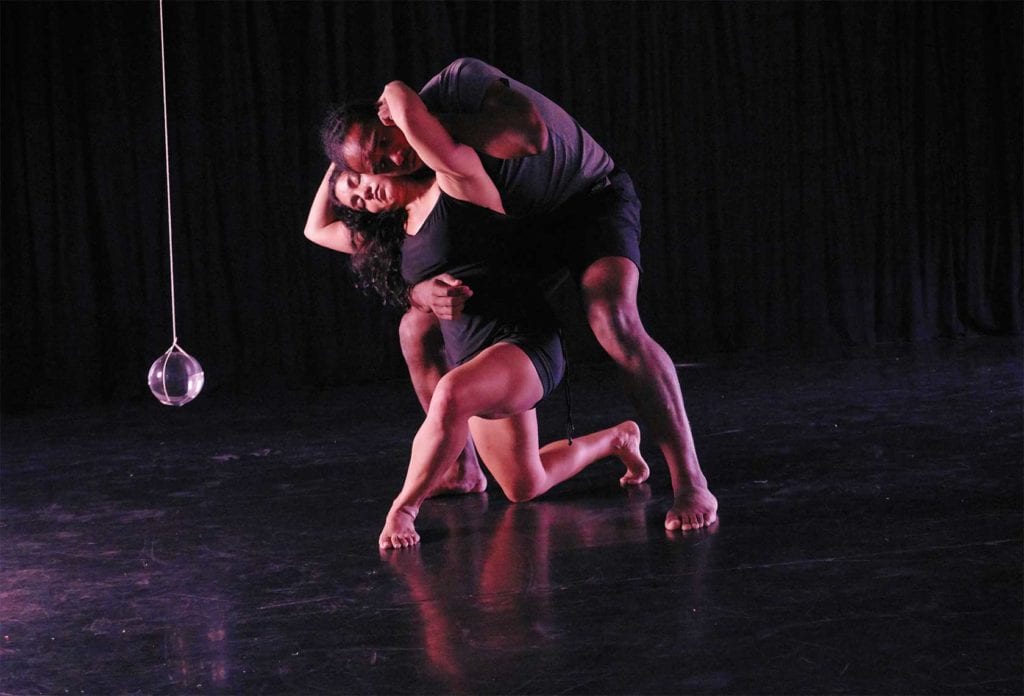Dance cohort explores politically charged issues in ‘We Try to Live Together’

In 2018, The Boston Foundation tasked seven choreographers with exploring the next steps for Boston dance. With financial support and studio space from the Foundation, the cohort of dancers spent the 2018-2019 season delving into their own personal experiences and pulling those emotions onto the stage. On Sept. 26–28 those stories will come together in the group show “We Try to Live Together” at the Boston Center for the Arts.
“We got very excited about the ways our work intersected even though we’re doing very different things,” says Catherine Siller, one of the choreographers involved. “There’s a lot going on in our communities and in the world right now and a lot of us were feeling the need to address that in our work.”
The seven choreographers, Callie Chapman, Michael Figueroa, Meghan McLyman, Kristen Duffy Young, Marsha Parrilla, Catherine Siller and J. Michael Winward, created their works — which they perform as well — separately during the cohort, with no intention of putting them into a larger show. When they decided to demonstrate their work for the public, the individual performances worked surprisingly well together.
The artists cover a spectrum of issues in the show. Parrilla investigates the theme of migration as a Puerto Rican woman living in the United States. Michael Winward looks at traditionally American content through his own lens of a gay man. Duffy Young and McLyman explore the rigid boundaries of gender expectations.
Siller investigates how consumerism has contributed to the creation of unrealistic image expectations for women. “I feel like we live in a world where a lot of things are very consumer-based. We’re really being confronted with these crazy idealized versions of what it means to be a woman or a fashion model or a man,” says Siller. By projecting ads from the 1920s onward and interacting with them in her dance performance, she illustrates the futility of chasing each new trend and beauty standard.
The Sept. 26–28 performances will be held in two theaters at the BCA Plaza. One ticket gives audience members access to both theaters. Each performance is eight to 12 minutes long, featuring the work of one of the choreographers. Siller hopes to be able to foster discussion about each of the topics as well.
The compilation of each performance truly does get to the heart of what’s next for the Boston dance scene. Siller says she’s seeing a lot of politically engaged work emerging in the city. “We would really like it if audiences come away with empathy for people who are grappling with these issues,” she says, “and curiosity for how the community can support each other and come together during challenging times.”









